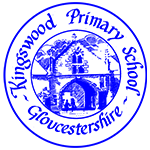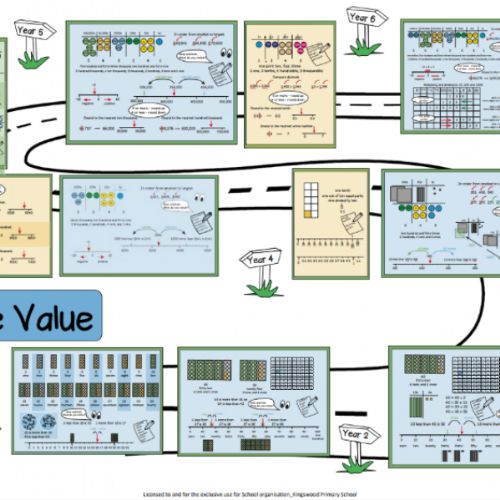Mathematics
Taking a "mastery" approach:
Our vision at Kingswood Primary School is for all children to become fluent mathematicians, with a deep and secure understanding of concepts, enabling them to reason and solve problems in a range of contexts. We have adopted a Teaching for Mastery approach to our mathematics curriculum. Children are guided along a coherent, small step journey together, using concrete, pictorial and abstract representations to explore concepts and build connections, with opportunities to both support and challenge thinking and reasoning. As a school we work closely with the GLOW Maths hub. One of our teachers is a Primary Maths Specialist in Teaching for Mastery and supports other local schools to develop this approach.
Conceptual understanding is developed through concrete (physical) and visual representations and children demonstrate their learning through "Do it" tasks which are carefully prepared by teachers. Children are given the opportunity to explain their reasoning as part of "Twist it" tasks in the daily maths lessons. They are also challenged by being exposed to a variety of rich and sophisticated problems, labelled "Solve it" challenges. Through daily assessment and observation, we are able to support and accelerate learning for each pupil.
Classes in Key Stages One and Two hold review sessions which enable the children to practise, embed and therefore become fluent in their number facts and working with number and the four operations (+, -, x and ÷). We encourage a positive mindset in our children and believe that all children are able to succeed in mathematics.
In years 1-6 we follow the CanDo Maths small steps to provide our children with a coherent journey through their learning in mathematics. Please see below for more information about what this looks like in each year group.
Teachers make use of progression documents when starting a new unit of work and to help identify gaps in learning. Here is an example showing the progression in Place Value, which has been taken from the knowledge organisers available for each year group (please see maths content under class pages to view these):
Number:
Children at the expected level of development will:
- Have a deep understanding of number to 10, including the composition of each number;
- Subitise (recognise quantities without counting) up to 5;
- Automatically recall (without reference to rhymes, counting or other aids) number bonds up to 5 (including subtraction facts) and some number bonds to 10, including double facts.
Numerical patterns:
Children at the expected level of development will:
- Verbally count beyond 20, recognising the pattern of the counting system;
- Compare quantities up to 10 in different contexts, recognising when one quantity is greater than, less than or the same as the other quantity;
- Explore and represent patterns within numbers up to 10, including evens and odds, double facts and how quantities can be distributed equally.
Progression into KS1 and KS2
Our work in the Early Years flows into our KS1 and KS2 curriculum, which follows the National Curriculum for mathematics:




